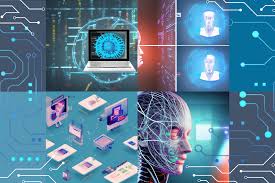Technology plays a crucial role in the healthcare industry, and its importance cannot be overstated. It has the potential to revolutionize healthcare delivery, improve patient outcomes, enhance efficiency, and drive advancements in medical research. Here are some key reasons why technology is important in the healthcare industry:

Improved Patient Care and Outcomes: Technology enables healthcare providers to deliver more accurate, precise, and personalized care to patients. Advanced medical imaging technologies, such as MRI and CT scans, provide detailed visualizations for accurate diagnosis. Robotic-assisted surgeries and minimally invasive procedures reduce patient discomfort, minimize complications, and enhance surgical outcomes. Digital health solutions, including wearable devices and remote monitoring, empower patients to actively participate in their own care, leading to improved self-management and better health outcomes.
Enhanced Efficiency and Workflow: Technology streamlines healthcare processes, reducing administrative burden, improving efficiency, and optimizing workflow. Electronic Health Records (EHRs) enable seamless information sharing, reducing errors and duplication of tests. Digital documentation and automation of tasks minimize paperwork, allowing healthcare professionals to focus more on patient care. Appointment scheduling systems, digital prescriptions, and online portals enhance convenience for patients and providers alike.
Access to Healthcare: Technology has the potential to bridge geographical barriers and improve access to healthcare, especially in remote or underserved areas. Telemedicine and remote care technologies enable patients to consult healthcare professionals through video conferencing, reducing the need for travel and minimizing waiting times. Mobile health applications provide information, education, and access to healthcare services, enhancing healthcare access for diverse populations.
Medical Research and Advancements: Technology accelerates medical research and drives advancements in healthcare. Data analytics and artificial intelligence enable researchers to analyze large datasets, identify patterns, and derive insights for personalized medicine, drug discovery, and treatment optimization. Genomic sequencing technologies have led to advancements in precision medicine, enabling targeted therapies based on an individual's genetic makeup. Technology also facilitates the sharing of research findings, fostering collaboration and accelerating progress in medical science.
Preventive and Predictive Care: Technology enables a shift towards preventive and predictive care models, emphasizing early detection and intervention. Remote monitoring devices and wearable sensors collect real-time health data, enabling healthcare providers to detect potential health risks and intervene before they escalate. Predictive analytics can identify high-risk populations, monitor disease outbreaks, and optimize resource allocation for preventive measures.
Patient Engagement and Empowerment: Technology empowers patients by providing access to health information, resources, and tools for self-management. Health apps, patient portals, and online communities facilitate communication between patients and healthcare providers, enhancing patient engagement and shared decision-making. Access to personal health records, lab results, and educational resources enables patients to actively participate in their care and make informed decisions.
Data Security and Privacy: With the digitization of healthcare information, technology plays a critical role in ensuring data security and patient privacy. Robust cybersecurity measures, encryption, and secure data storage protocols protect sensitive patient information. Strict access controls and consent-based data sharing mechanisms safeguard patient privacy rights.
Collaboration and Communication: Technology enables seamless communication and collaboration among healthcare providers, improving care coordination and patient outcomes. Health information exchange systems facilitate secure sharing of patient data across different healthcare organizations, reducing the need for redundant tests and enhancing continuity of care. Teleconferencing and video conferencing tools enable remote consultations and multi-disciplinary team discussions, fostering collaboration and expertise sharing.